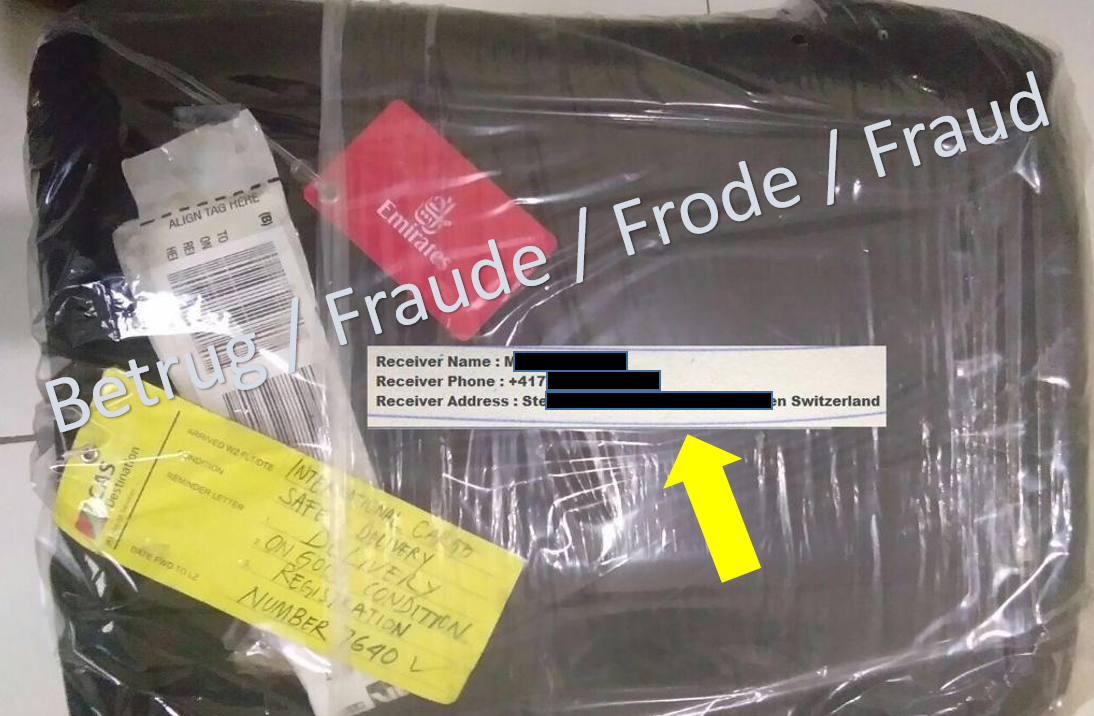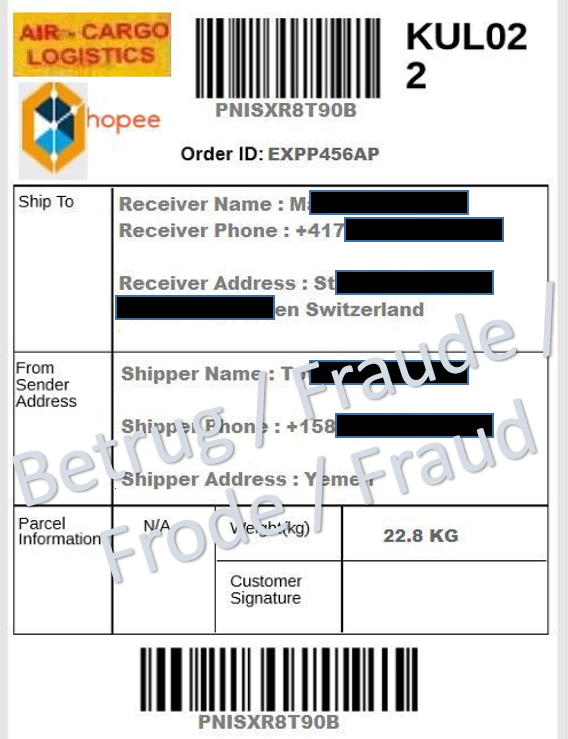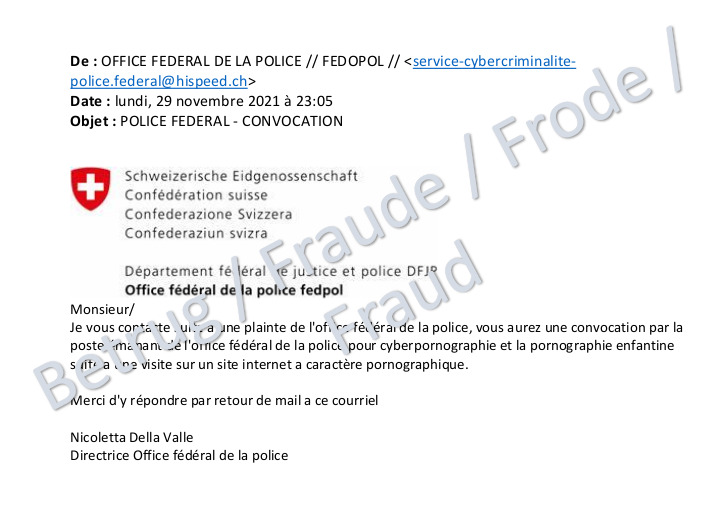14.12.2021 - The NCSC once again received a higher number of reports in the second week of December. One case of advance payment fraud reported to the NCSC is a perfect example of the lengths fraudsters go to in order to achieve their goal with a person who appears willing to pay. Fake extortion is another frequently reported scam at present. In some cases, fedpol is indicated as the sender.

Advance payment fraud: fraudsters go to great lengths to lure their victims into a trap
Online fraud is usually a large-scale business. The perpetrators randomly put out lots of bait in the hope that someone will bite. But once they have someone on the hook, they often make an even bigger effort. A case reported to the NCSC illustrates this perfectly. The person reporting had received a so-called advance fee fraud email. This informed the recipient that a parcel with valuable contents was on its way to him, but that he would have to pay fees or similar before he could receive it (make an advance payment for the alleged big prize). As proof of its existence, the fraudsters forged three documents, all of which showed information specific to the "victim", such as name, address and telephone number.
In order to mislead every victim with documents that look as genuine as possible, the fraudsters have to go to considerable lengths to customise them despite it being a large-scale business.
- Ignore messages promising you a big prize.
- If you are in contact with the fraudsters, cease immediately.
- Do not make any payments under any circumstances.
- If payments have been made, immediately contact the financial institution concerned and try to stop the payment.
- In addition, file a criminal complaint with your local police station.
Fake extortion – fearmongering
For several weeks now, there has been a spate of fake extortion emails purporting to come from various police authorities in Europe. Recipients are accused of possessing child pornographic material and therefore have to pay a fine. The emails were initially reported sporadically in the French-speaking part of Switzerland and were from a supposedly French or European police authority. The fraudsters have since explicitly chosen to target French-speaking Switzerland and accordingly the name of the Director of the Federal Office of Police (fedpol), Nicoletta della Valle, is misused as the sender of these fake extortion emails.
The NCSC found that several of the reported fake extortion emails had been sent from UPC provider accounts. The sender addresses used for the fraud were created via the presumably hacked accounts of UPC customers. UPC reacted very quickly and deleted these and other similar email addresses, so that, at least from that side, no further emails can be sent.
However, the NCSC also receives regular reports of people suffering serious threats via a social network, messaging service or email. The perpetrators pretend to be near the victim and want to harm him or her for some fabricated reason. The victim is supposed to pay a certain amount of money to prevent this. The fraudsters possibly use information from social media to lend more credibility to their threat.
Most of these threats are groundless and are therefore considered fake extortion. To increase the likelihood that someone will respond to the fake extortion, the perpetrators often send several similar threats.
If a threat is not clearly identifiable as a fake, the police should always be involved.
- Do not allow yourself to be put under pressure and do not react to such threats.
- If in doubt, report the threat directly to your local cantonal police.
- By submitting a report to the NCSC, you will help to ensure that such threats are identified at an early stage and that other people are warned about them.
Current statistics
Last week's reports by category:
Last modification 14.12.2021















